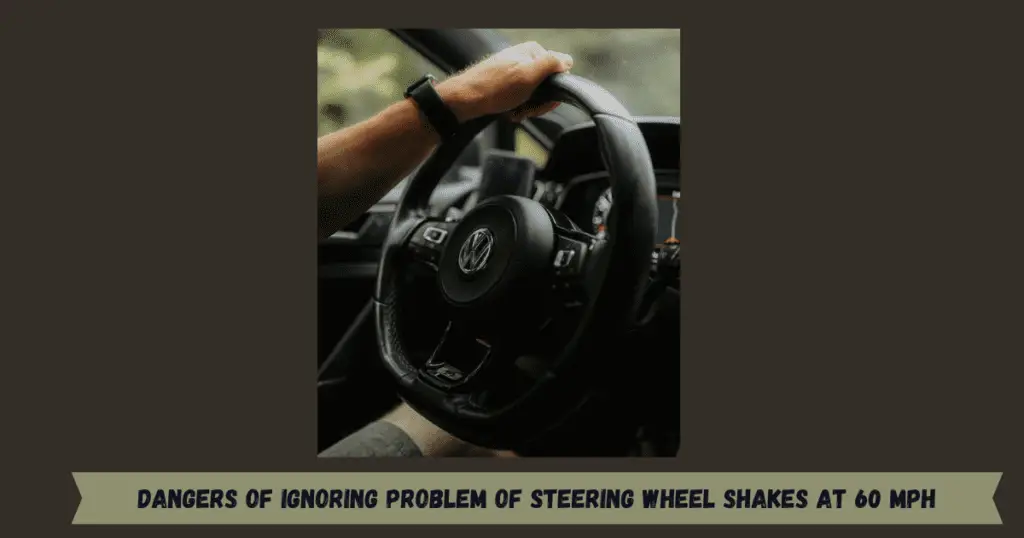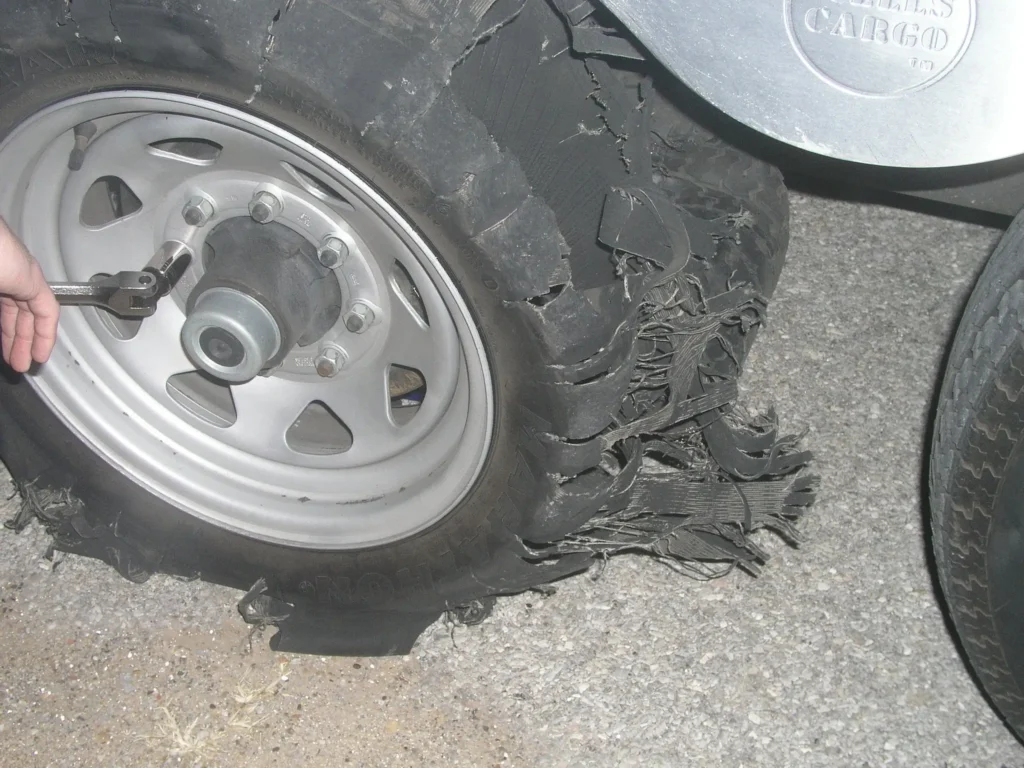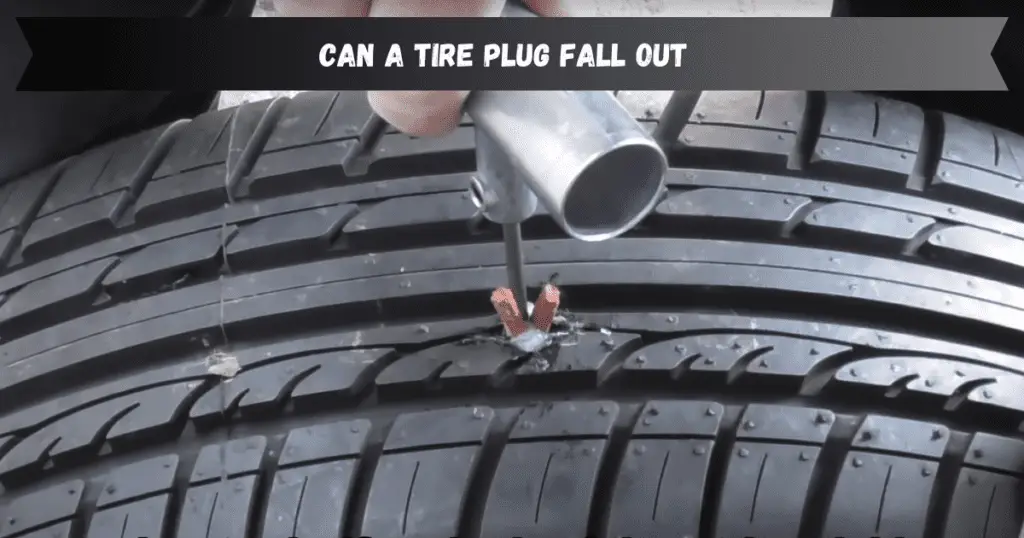Cruising comfortably at highway speeds only to have your steering wheel start violently shaking is not only unnerving but potentially dangerous. Determining the cause of Steering Wheel Shakes at 60 mph helps you fix the problem promptly.
While tires and wheels are the most likely culprits, engine issues and suspension faults can trigger shakes around 60 mph. Identifying the root issue is key before attempting repairs.
Common Causes of Steering Wheel Shaking
These culprits typically provoke steering wheel shakes at 60 mph and intensify at this speed:
Unbalanced Tires
Wheels that are out of balance, usually from lost balancing weights, cause vibrating that gets worse with speed. Around 60 mph is often the peak intensity before shaking dissipates at higher speeds.
Tire Defects
Manufacturing defects like belt separations can create high-speed vibrations. Once tires rotate at higher velocities, the defects create oscillating forces.
Bent Wheels
Wheels bent from potholes or impacts can throw off circular smoothness, causing shakes. The wobble effect worsens with speed.
Worn Wheel Bearings
Excess bearing play from worn parts allows the wheel hub excessive movement. The worse it gets, the more pronounced vibration becomes.
Drivetrain Issues
Problems like bad CV joints and axle unbalance create vibrations that intensify with speed as drivetrain rotations increase.
Brake Imbalance
Warped rotors and uneven pad deposits lead to pulsating when braking. This generates steering wheel shakes most noticeable at highway speeds.
Engine Misfires
Misfiring cylinders cause power pulses that are most discernible around 60 mph cruising RPMs, vibrating the steering wheel.
Dangers of Ignoring the Problem of Steering
Prolonged operation with your vehicle steering wheel vibratingDOES A VIBRATE? at 60 mph can lead to:

- Accelerated tire and wheel damage
- Premature failure of wheel bearings
- Drivetrain wear and tear
- Reduced braking ability
- Engine issues worsening
- Loss of vehicle control
Don’t dismiss vibrations at speed. Pulsing brakes, shaky steering, and excessive noise indicate potentially serious mechanical issues.
How to Diagnose the Cause
Pinpointing the origin of 60 mph shakes involves:
- Test driving – Shake emergence at higher speeds points to wheel balance, tire defects, bent wheels, bearings, or driveline. Vibrations when braking suggests brake system problems. Engine roughness felt elsewhere could indicate ignition misfires.
- Visual inspection – Check for badly worn tires with edge cracking or belts showing, debris stuck in wheels, dried-out grease around bearings, torn CV boots, and body damage indicating bent wheels.
- Service records – When were tires last balanced and replaced? Have bearings, brakes, and driveline been inspected lately? When were the spark plugs and ignition system last serviced?
Once the symptoms and component condition are assessed, you can better isolate the problem area.
Fixing the Issues
With the root cause determined, here are the repairs to address steering wheel shakes at 60 mph:
- Unbalanced tires – Have tires dismounted and dynamically balanced on a balancer
- Tire defects – Replace defective tires showing belt separation or abnormal wear patterns
- Bent wheels – Repair or replace wheels showing obvious damage or deformation
- Bad wheel bearings – Replace worn bearings allowing excessive play in wheel hubs
- Driveline problems – Rebuild or replace faulty CV joints and half shafts causing unbalance
- Brake problems – Machine or replace warped rotors and replace pads to evenly match rotors
- Engine misfires – Replace faulty spark plugs, coils, injectors, and other ignition components
Proper repairs matched to your specific diagnosis will smoothly cure shakes emerging around 60 mph. Don’t ignore the problem.
Preventing Future Steering Wheel Shaking
Once fixed, remain proactive with:
- Regular tire balances and rotation to avoid imbalance
- New tires at first sign of defects or abnormal wear
- Periodic wheel bearing inspection and greasing
- Routine driveline lubrication and boot checks
- Brake system inspection when servicing brakes
- Following tune-up schedules to maintain engine performance


With attention and care, you can identify and resolve vibrations promptly before they escalate at higher speeds.
Frequently Asked Questions
Why does my steering wheel shake when I hit 60 mph?
At 60 mph, tire balance flaws, bent wheels, driveline issues, and other problems have rotational forces great enough to cause discernible vibrations through the steering wheel.
How do I stop my steering wheel from shaking at high speeds?
Identify the cause – potentially unbalanced tires, worn driveline joints, braking issues, etc. Then repair or replace the specific components causing the vibrations at 60+ mph.
What causes the steering wheel to shake at 70 mph?
The most common culprits are out-of-balance wheels, bent wheels, bad wheel bearings, driveline vibrations, and brake components like warped rotors. The same issues can provoke shakes at 60 or 70 mph.
Is it safe to drive with a shaking steering wheel?
You should have any persistent steering wheel vibrations inspected and repaired immediately, as potential underlying issues can worsen and become dangerous if ignored.
At what speed do unbalanced tires shake?
Most vehicles begin exhibiting shakiness from unbalanced tires around 50-60 mph as tire rotational speeds increase. The shaking may lessen above 70 mph as forces smooth out at very high RPM.
How do you diagnose steering wheel vibration?
Pinpoint the cause through test drives, visual inspections, and service records. Narrow it down based on whether shakes happen at speed when braking, on acceleration, etc. Test components like wheel balance and suspension to isolate the issue.
Conclusion
Diagnosing the source of any shaking emerging at 60 mph helps you determine proper repairs. Don’t ignore new vibrations at highway speeds, which signal potentially serious mechanical issues.
With proactive maintenance and addressing problems promptly, you can resolve shakes at 60 mph and maintain smooth driving. Consistent vibrations always warrant inspection to identify their exact cause before further damage occurs.





